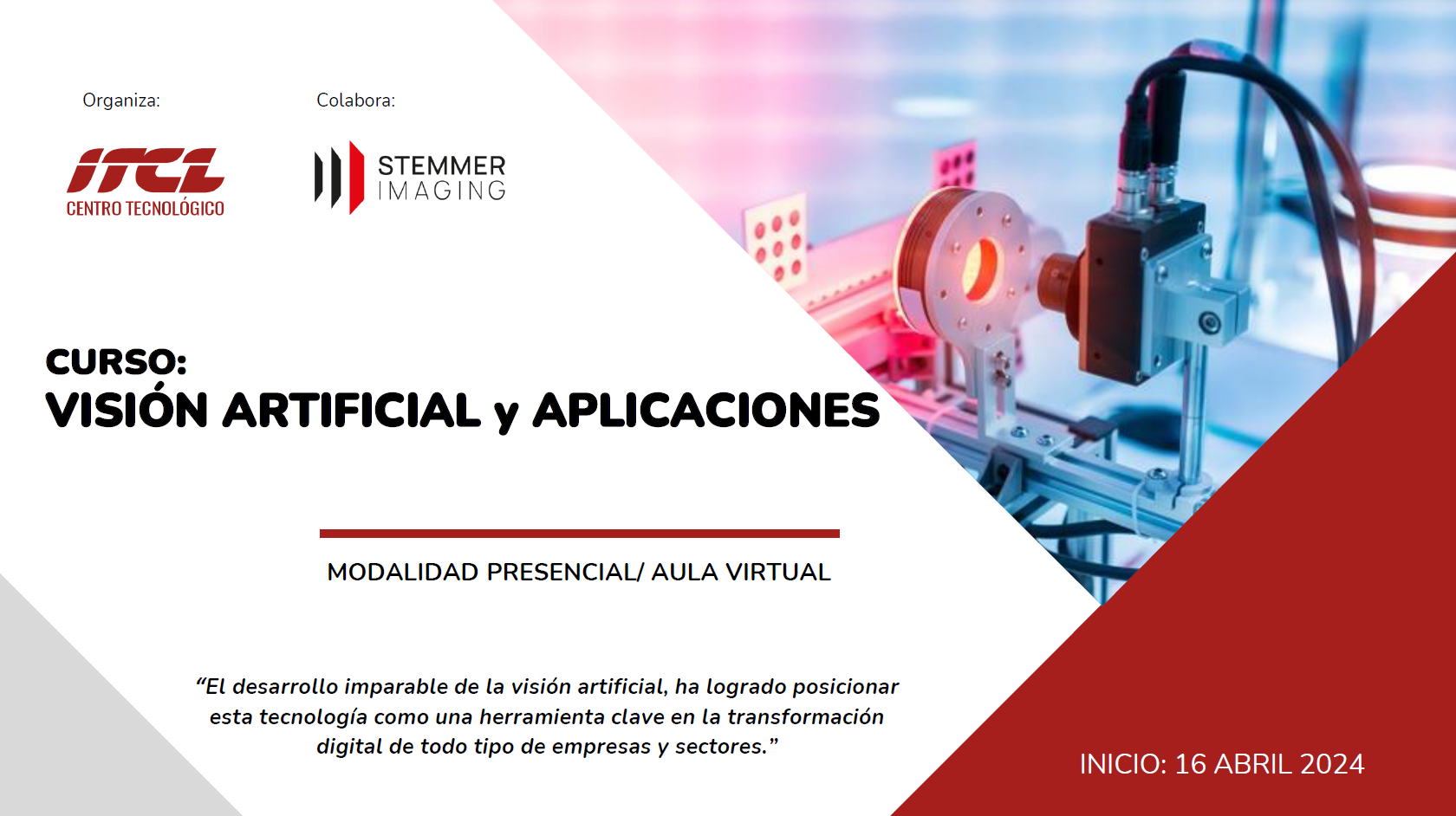ITCL Centro Tecnológico, an affiliated entity of DIGIS3, will hold a course on "Artificial Vision and Applications" on 16, 24, 30 April and 7 May, oriented towards the implementation of artificial vision-based solutions in industrial plants, with a special focus on data capture and transmission.

The course aims to explain the basic concepts of machine vision and existing technologies, it covers the main machine vision hardware and software solutions applied to industry and shows examples of applications in industrial environments. Process technicians will learn how to identify situations where simple or complex vision technologies can be applied to improve plant processes.
The training, which is supported by DIHBU and DIGIS3, is aimed especially at members of technical engineering teams of industrial companies and members of IT and systems technical teams. It will be held on the above-mentioned days at the ITCL headquarters in Burgos (C/López Bravo, 70) from 08:30 to 13:30, for a total of 20 hours.. Students can opt for the virtual classroom option to follow the course online, and can attend some sessions in person if they wish. In addition, the training is complemented by a moodle platform where the course material can be viewed and downloaded.
The registration fee is €600, but there are a number of discounts available to those who are interested, as detailed below:
- General discounts for ITCL client companies and DIHBU members: 10% first enrolment and 15% for all other enrolments.
- Specific discount for SMEs under the support of DIGIS3: Up to 50%.
- Discount through FUNDAE with no cost management from ITCL.
To register or obtain more information, please click on the link to the course provided by ITCL.